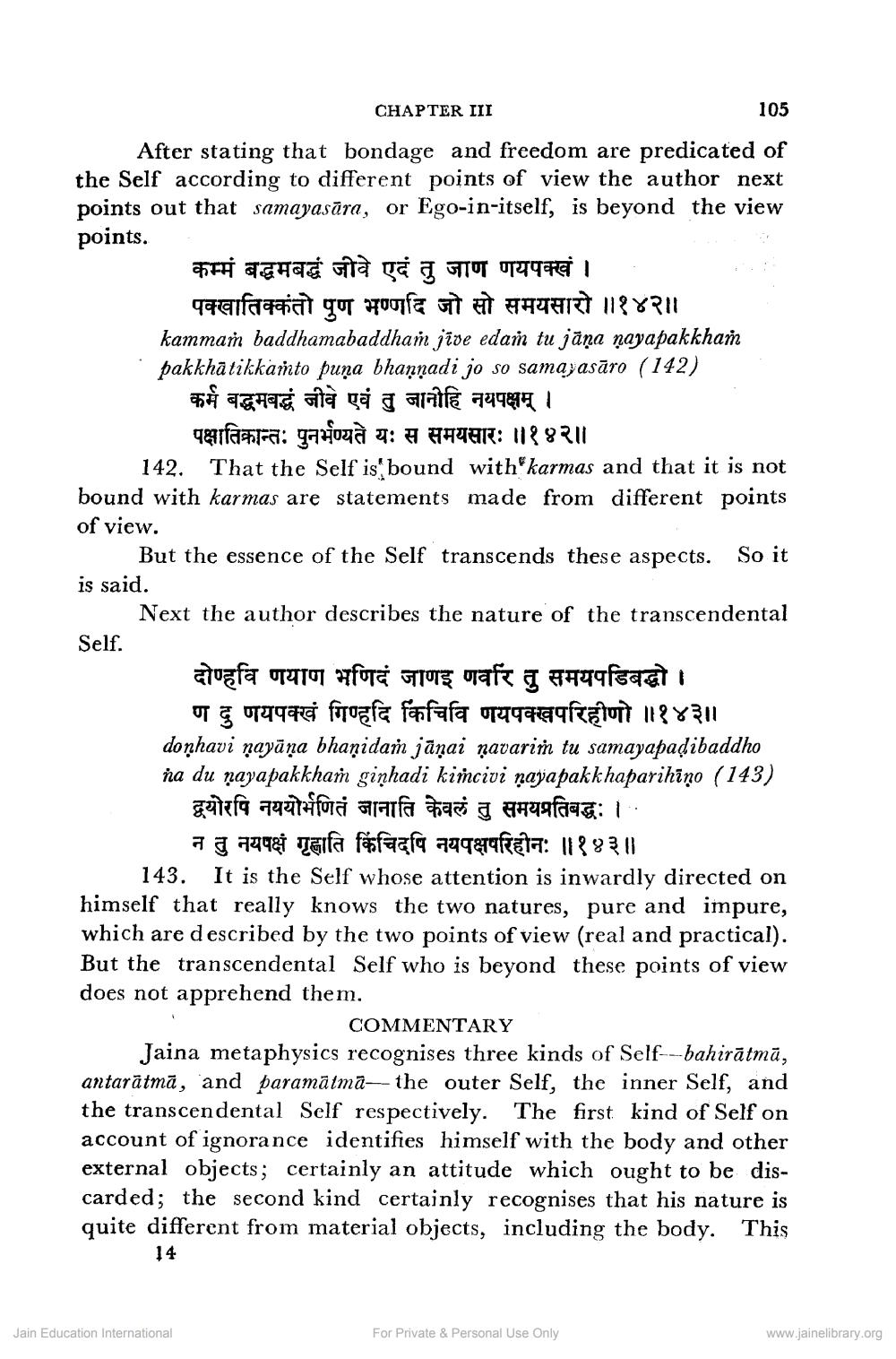________________
CHAPTER III
105
After stating that bondage and freedom are predicated of the Self according to different points of view the author next points out that samayasāra, or Ego-in-itself, is beyond the view points.
कम्मं बद्धमबद्धं जीवे एदं तु जाण णयपक्खं ।
पक्खातिक्कंतो पुण भण्णदि जो सो समयसारो ॥१४२॥ kammam baddhamabaddham jide edam tu jāņa nayapakkham pakkhā tikkaito puņa bhannadi jo so samazasāro (142)
कर्म बद्धमबद्धं जीवे एवं तु जानीहि नयपक्षम् ।
पक्षातिक्रान्तः पुनर्भण्यते यः स समयसारः ॥१४२॥
142. That the Self is bound with"karmas and that it is not bound with karmas are statements made from different points of view.
But the essence of the Self transcends these aspects. So it is said.
Next the author describes the nature of the transcendental
Self.
दोण्हवि णयाण भणिदं जाणइ गरि तु समयपडिबद्धो।
ण दु णयपक्खं गिण्हदि किचिवि णयपक्खपरिहीणो ॥१४३॥ doņhavi nayāņa bhanidam jāņai ņavarim tu samayapadibaddho na du nayapakkham giņhadi kimcivi nayapakkhaparihīno (143)
द्वयोरपि नययोर्भणितं जानाति केवलं तु समयप्रतिबद्धः । .
न तु नयपक्षं गृह्णाति किंचिदपि नयपक्षपरिहीन: ॥१४३॥ 143. It is the Self whose attention is inwardly directed on himself that really knows the two natures, pure and impure, which are described by the two points of view (real and practical). But the transcendental Self who is beyond these points of view does not apprehend them.
COMMENTARY Jaina metaphysics recognises three kinds of Self---bahirātmā, antarātmā, and paramātmā-- the outer Self, the inner Self, and the transcendental Self respectively. The first kind of Self on account of ignorance identifies himself with the body and other external objects; certainly an attitude which ought to be discarded; the second kind certainly recognises that his nature is quite different from material objects, including the body. This
Jain Education International
For Private & Personal Use Only
www.jainelibrary.org




